 |
| Prime Minister Pham Minh Chinh attends the ceremony to celebrate the 80th anniversary of the Judicial Sector's Traditional Day (August 28, 1945 - August 28, 2025) and the 6th Patriotic Emulation Congress of the Judicial Sector - Photo: VGP/Nhat Bac |
Attending the event were: Deputy Prime Minister Le Thanh Long; Vice Chairman of the National Assembly Nguyen Khac Dinh; leaders of ministries, branches, and central agencies; Minister of Justice of the Lao People's Democratic Republic, representatives of embassies of countries, representative agencies, and international organizations in Vietnam; leaders of provinces and cities.
On this occasion, on behalf of the Party and State leaders, Prime Minister Pham Minh Chinh awarded the First Class Labor Medal to the Ministry of Justice; Deputy Prime Minister Le Thanh Long awarded the Third Class Labor Medal to collectives and individuals.
Judiciary 80 years under the light of the rule of law
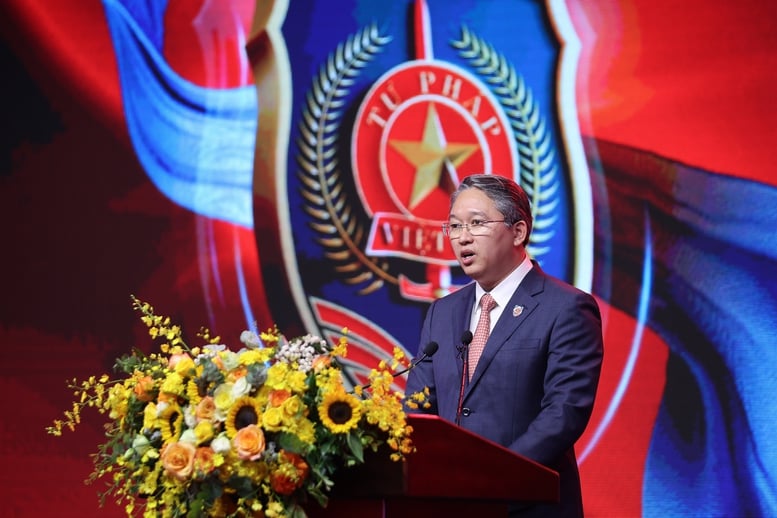 |
| Minister of Justice Nguyen Hai Ninh delivers a speech at the ceremony - Photo: VGP/Nhat Bac |
Delivering a speech at the ceremony, Minister of Justice Nguyen Hai Ninh emphasized that over the past 80 years of formation and development, the Ministry of Justice and the judicial sector have gone through challenging but also glorious stages, actively contributing to the cause of building and defending the Fatherland, building a socialist rule-of-law state of the people, by the people, for the people under the leadership of the Party.
The Ministry of Justice has proactively advised and proposed to contribute to perfecting the Party's thinking and theoretical awareness on building a rule-of-law state and on the work of building institutions and laws; increasingly affirming its role as a core force advising on building and perfecting the legal system.
The Ministry of Justice has presided over and coordinated with ministries, branches and localities to help the Government actively participate in the process of building the Constitutions, from the first Constitution in 1946, the Constitution in 1959 to the Constitutions of the Renovation period such as the Constitution in 1992, the Constitution in 2013 and recently the amendment and supplementation of a number of articles of the Constitution in 2013 to serve the policy of streamlining the organizational apparatus and implementing the model of a two-level local government.
The Ministry of Justice has also successfully completed its task of presiding over and advising on the drafting of a number of important laws such as the Civil Code, the Penal Code, the Law on Promulgation of Legal Documents, the Law on Handling of Administrative Violations, the Law on Enforcement of Civil Judgments, and many other important legal documents. At the same time, it has proactively and creatively advised on specific legal mechanisms, especially contributing to flexible and timely policy responses, removing many "bottlenecks" in practice.
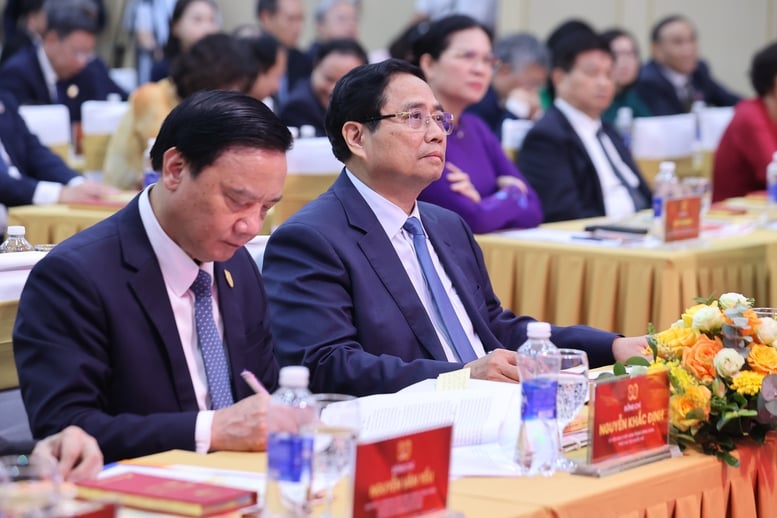 |
| Prime Minister and delegates attending the celebration - Photo: VGP/Nhat Bac |
During this term, the Government has strongly innovated the work of law-making; organized 39 thematic meetings on law-making, completing a record volume of law-making tasks. In 2024 and the first 7 months of 2025, the Government submitted 66 laws and 15 resolutions to the National Assembly for approval. At the 9th Session alone, the Government and relevant agencies submitted and had the National Assembly approve 35 laws, accounting for 52.3% of the total number of laws promulgated at 17 sessions of the 15th National Assembly.
International legal work and international cooperation on law and justice have been carried out more and more effectively; advising the Government and local authorities at all levels to implement many solutions to strongly innovate the organization of law enforcement, raising awareness of law compliance; State management in the fields of judicial administration, judicial support, legal aid, and legal support for small and medium-sized enterprises has been focused on; effectively implementing the policy of socializing a number of judicial and judicial support activities; gradually building and developing a unified and professional system of civil judgment enforcement agencies, in the direction of comprehensively reforming management methods and operations on the basis of the "electronic judgment enforcement" platform.
According to Minister Nguyen Hai Ninh, the results achieved are thanks to solidarity, sharing joys and sorrows to overcome all difficulties and challenges, and steadfastly step forward under the light of the rule of law. "Behind each draft law passed by the National Assembly, each legal document put into practice, is a journey of serious work, from frank and responsible discussions, to working all night, through holidays, almost without days off, with the spirit of "running and lining up" and the silent sacrifices but full of patriotism, burning desire for a constructive and developing institution, is the most vivid proof of the intelligence, enthusiasm and dedication of "the Judiciary". That is the precious tradition, the spiritual heritage of the industry that future generations need to inherit, preserve and promote", the Minister emphasized.
In recognition of its achievements over the past period, the Judicial sector was honored by the Party and State with the Ho Chi Minh Medal, the Gold Star Medal and many other noble emulation titles for collectives and individuals throughout the sector.
Minister Nguyen Hai Ninh said that, facing the context of the country entering a new era with intertwined opportunities and challenges, the Ministry of Justice has been adapting flexibly and proactively to the new context, determined to innovate thinking and methods of operation, closely following the strategic goals of the Party and State so that each legal document issued is both "standing on the practical land of Vietnam" and approaching international legal standards, truly contributing to unlocking resources, innovating, creating a transparent and favorable investment and business environment; improving people's access to the law; actively contributing to the building and perfecting of the socialist rule-of-law State of Vietnam; promoting socio-economic development, ensuring national defense and security, and enhancing the country's position in the international arena.
Always the "key organ of government"
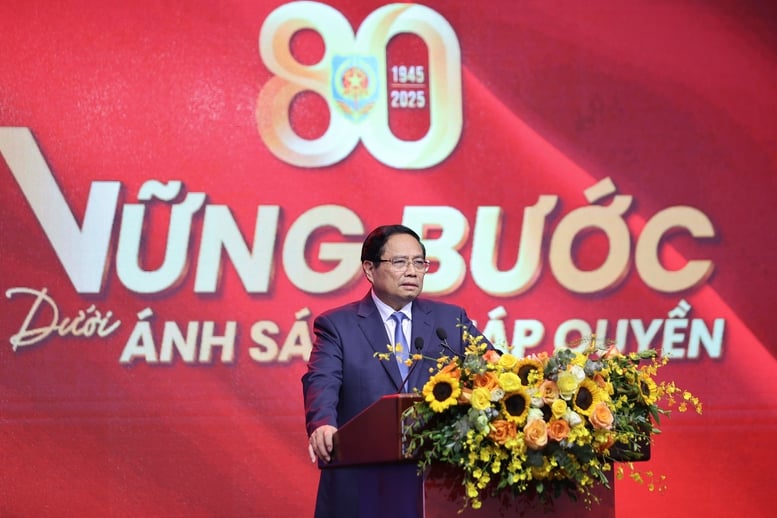 |
| Prime Minister Pham Minh Chinh expressed his joy at attending the 80th anniversary celebration and the Patriotic Emulation Congress of the Judiciary sector during the historic August days - Photo: VGP/Nhat Bac |
Speaking at the event, Prime Minister Pham Minh Chinh expressed his joy at attending the 80th anniversary celebration and the Patriotic Emulation Congress of the Judiciary sector in the heroic historical days of August of the nation, joining in the jubilant and excited atmosphere of the whole country celebrating the 80th anniversary of the August Revolution and National Day September 2, and the 80th anniversary of the People's Public Security Traditional Day.
The Prime Minister emphasized that we respectfully remember and have infinite gratitude to President Ho Chi Minh - the great teacher of the Vietnamese Revolution, the national liberation hero, the world cultural celebrity of Vietnam, the founder of the Democratic Republic of Vietnam and the founder of the revolutionary democratic judiciary; at the same time, we are deeply grateful to generations of leaders, civil servants and public employees of the judiciary sector; grateful to learn and constantly grow.
In the glorious history of thousands of years of building and defending the country, our legal system has been painstakingly built by generations of ancestors with many famous codes, bearing the unique mark of Vietnamese civilization and clearly demonstrating the idea that to govern the country, there must be laws such as Penal Code (Ly Dynasty), Penal Code (Tran Dynasty), National Dynasty Penal Code - Hong Duc Code (Later Le Dynasty), Hoang Viet Laws of Nguyen Dynasty...
In particular, President Ho Chi Minh always emphasized the importance of the Constitution and laws in state and social management from a very early age. Right from the first days of his journey to find a way to save the country, he demonstrated a timeless vision of the role of law in protecting human rights, as a barrier against all oppression and exploitation.
The "Demand of the People of Annam", considered the first political declaration of the Vietnamese people sent to the Versailles Conference in 1919, included 8 points all referring to the protection of human rights and reform of the legal system in Indochina. Later, this very demand was translated into Vietnamese by Nguyen Ai Quoc in 1922 under the title "Vietnam's Request Song", in which it emphasized: "Seven requests for the promulgation of the constitution/Hundreds of articles must have the spirit of the law".
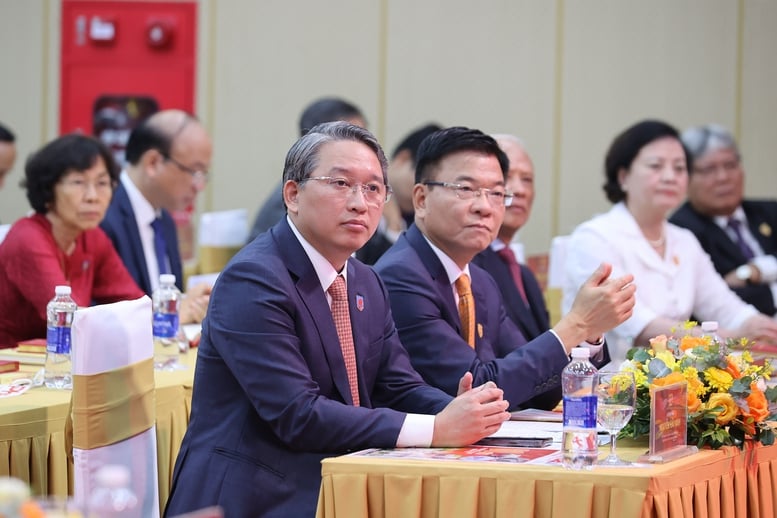 |
| Delegates attending the celebration - Photo: VGP/Nhat Bac |
Immediately after the success of the August Revolution, under the leadership and direction of the Party and beloved Uncle Ho, the Provisional Government of the Democratic Republic of Vietnam was established with 13 ministries, including the Ministry of Justice (August 28, 2025). On September 2, 1945, President Ho Chi Minh read the Declaration of Independence giving birth to the Democratic Republic of Vietnam, which also clearly affirmed everyone's equality before the law and the right to oppose oppression.
At the first meeting of the Government (September 3, 1945), one of the six urgent tasks proposed by President Ho Chi Minh was: "We must have a democratic constitution. I propose that the Government organize a general election with universal suffrage as soon as possible" to soon have a constitutional State elected by the People. On September 20, 1945, he signed the Decree establishing the Constitution Drafting Committee. After the General Election, the first democratic Constitution of the State of Vietnam was promulgated (Constitution 1946).
Over 80 years of glorious revolutionary history under the leadership of the Party, from the long-term resistance wars, the struggle for national independence and unification to the cause of renovation and opening up, international integration, our country's legal system has been constantly innovated, perfected and synchronized to suit the situation and practical requirements of each period. In particular, our Party and State have always deeply recognized the particularly important role and focused on leading and directing the work of building institutions and laws to serve the development of the country. To date, we have had 5 Constitutions in 1946, 1959, 1980, 1992, 2013.
The Prime Minister stated: After 80 years of formation and development, born with the establishment of the Provisional Government, when independence had just been gained in a "thousand pounds hanging by a thread" situation, the Ministry of Justice, together with the young people's democratic government, solved many difficulties, made historical marks, and opened the journey of building and developing the Judiciary. From being one of the first 13 ministries of the Provisional Government in 1945 to the current synchronous organizational system from the Central to the local level, we can affirm that the Judiciary has always accompanied and made important contributions to the country in the steadfast struggles of our Party and our People for national independence and socialism, increasingly demonstrating the position and role of "an important organ of the government" - as beloved President Ho Chi Minh once affirmed.
The role of "development creator", "legal gatekeeper"
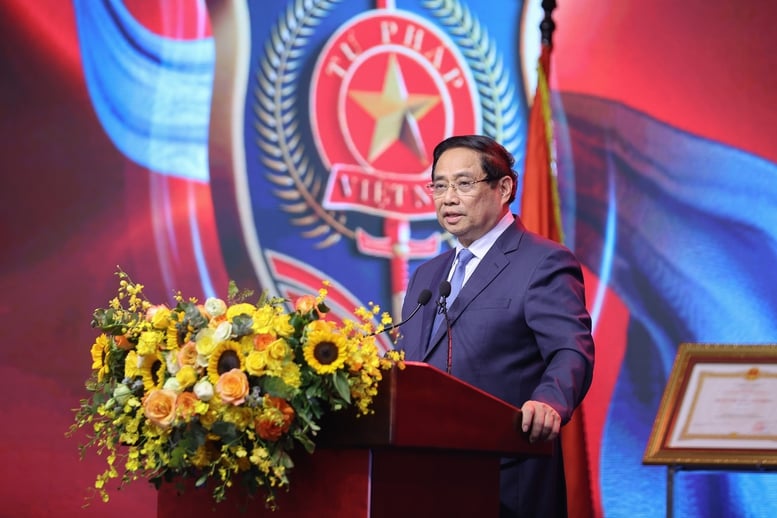 |
| The Prime Minister assessed that the Ministry of Justice has actively and proactively focused on building and perfecting the legal system and building a socialist rule-of-law state - Photo: VGP/Nhat Bac |
According to the Prime Minister, looking back at the history of formation, development and growth of the Ministry of Justice and the Justice sector over the past 80 years, we can summarize 6 outstanding marks, summarized in 36 words: (1) Proactively building the rule of law; (2) Strictly enforcing the law; (3) Effective in civil cases; (4) Enhancing the organization of cadres; (5) Extensive international cooperation; (6) Actively removing obstacles.
Analyzing this content in more detail, the Prime Minister assessed that the Ministry of Justice has actively and proactively focused on building and perfecting the legal system and building a socialist rule-of-law state.
Second, improve and enhance the quality of law enforcement; innovate and modernize the law enforcement mechanism, especially in the field of judicial administration and judicial support. The Ministry of Justice's Administrative Reform Index is continuously ranked at the top of ministries and branches. The construction and operation of the National Law Portal is considered a typical achievement in digital transformation in the work of law making and enforcement.
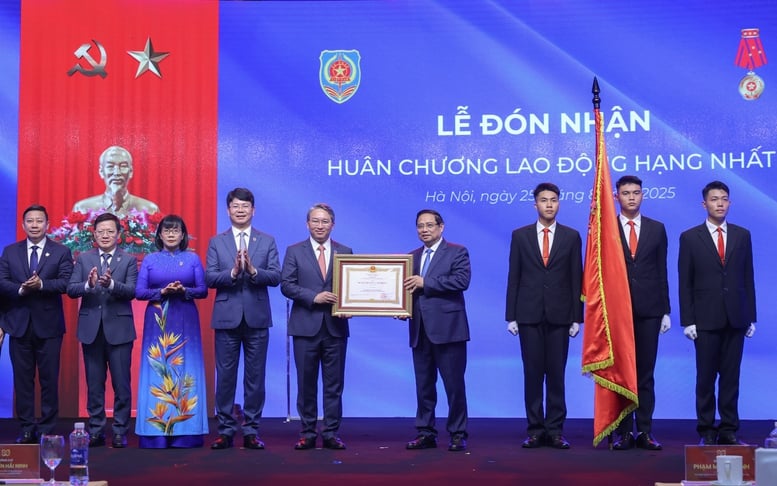 |
| Prime Minister Pham Minh Chinh presents the First Class Labor Medal to the Ministry of Justice - Photo: VGP/Nhat Bac |
Third, the enforcement of civil judgments has achieved many outstanding results. The targets on the rate of enforcement of judgments have been well met, protecting the interests of the State, the rights and legitimate interests of people and businesses. Focusing on recovering lost assets in corruption and economic cases.
Fourth, proactively build a streamlined Judicial Sector that operates effectively and efficiently and improves the quality of human resources.
Fifth, promote extensive, substantive and effective international cooperation; directly sign international treaties and agreements; advise the Party and State on international cooperation relations...
Sixth, accompany the nation in the revolution of organizational apparatus, "rearranging the country", removing institutional bottlenecks to unleash all resources for development. Along with the "revolution of organizational apparatus arrangement", we synchronously carry out the "revolution of institutional and legal building".
In recent years, implementing strategic breakthroughs in institutional building and improvement, the Ministry of Justice has continued to clearly demonstrate its role as a "development architect" and "legal gatekeeper" of the Government with the task of appraising all draft laws and ordinances before submitting them to the Government and the National Assembly.
Particularly during this term, the entire Judicial sector has closely followed the resolutions and conclusions of the Central Committee, the National Assembly, the Government, and the Prime Minister, focusing on proposing major and key policy orientations in legal reform, judicial reform, building and perfecting the socialist rule-of-law state of Vietnam, perfecting the socialist-oriented market economic institution; amending the legislative process to "improve the productivity and quality of law-making". The work of law-making and enforcement has been increasingly innovated in quality and quantity.
Recently, with the institutional motto of "being both a resource, a driving force, and a breakthrough for development", Prime Minister Pham Minh Chinh highly appreciated the Ministry of Justice and the judicial sector for promoting the spirit of "doing all the work, not all the hours", "working day, night, working overtime on holidays", "working through holidays and Tet", to excellently complete the tasks assigned by the Party, State, and People.
Notably, the staff submitted to the Politburo to issue Resolution 66 (April 30, 2025) on innovation in law-making and enforcement to meet the requirements of national development in the new era.
During the COVID-19 pandemic, in the spirit of "special circumstances, special times requiring special policies", the Ministry of Justice advised the Government to submit to the National Assembly Resolution 30 (July 28, 2021), the Government issued Resolution 66 (July 1, 2021), Resolution 86 (August 6, 2021) on urgent mechanisms, policies and solutions to prevent and combat the COVID-19 pandemic, especially Resolution 128 (October 11, 2021) promulgating temporary regulations "Safe, flexible adaptation, effective control of the COVID-19 pandemic.
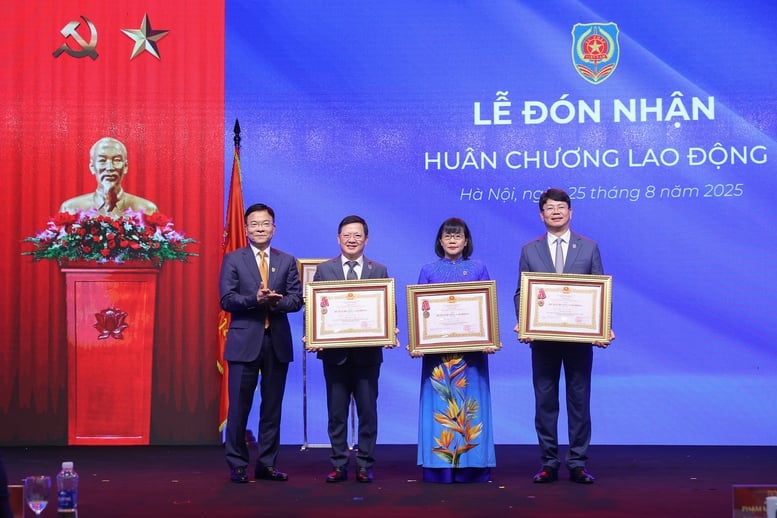 |
| Deputy Prime Minister Le Thanh Long presents Third-class Labor Medals to collectives and individuals - Photo: VGP/Nhat Bac |
The Ministry of Justice also advised the Government to submit to the National Assembly laws and resolutions to remove difficulties and obstacles. The 9th Session alone issued the largest number of laws and resolutions ever at a single session, including amendments to the Constitution.
At the same time, the Ministry drafted and submitted to the National Assembly for approval the Law on Promulgation of Legal Documents (amended); chaired the appraisal of 30 Decrees on decentralization, delegation of power, and division of authority to promptly submit to the Government for promulgation to serve the organization of two-level local governments. Chaired and participated in drafting many draft laws that urgently needed to be amended and promulgated to meet the requirements of the revolution in organizational and apparatus arrangement.
"We are very happy that the wishes and ideals of beloved Uncle Ho about a humane rule of law based on morality, for the benefit of the country, of the people, by the people, for the people have been and are being focused on by our entire Party and people to build and gradually realize. Regardless of the circumstances, the Judicial sector has always strived and responsibly fulfilled its assigned tasks and made positive and effective contributions to the process of building, consolidating and developing the three important pillars of the country: Socialist democracy, Socialist rule of law State and Socialist-oriented market economy", the head of the Government emphasized.
In particular, in recent years, the Judicial sector has continued to be trusted by the Party and the State to advise on innovation in the work of building and organizing law enforcement, contributing to creating institutional breakthroughs and bringing the country steadily into a new era. The Politburo has decided to establish a Central Steering Committee on perfecting institutions and laws, headed by General Secretary To Lam. Under the leadership of the Party, the accompaniment of the National Assembly, the participation of the entire political system, and the support of the people, we have strongly innovated our thinking, methodology, and approach in law making.
With their positive contributions to the revolutionary cause of the Party and the nation, many collectives and individuals of the Judicial sector have been awarded noble titles and prizes by the Party and the State. On behalf of the Party and State leaders, the Prime Minister acknowledged, commended and highly appreciated the efforts, endeavors and important achievements of the Ministry of Justice and the entire Judicial sector over the past 80 years, making important contributions to the cause of building and defending the country.
Must accelerate, break through, be exemplary, take the lead, and pioneer in building and enforcing laws.
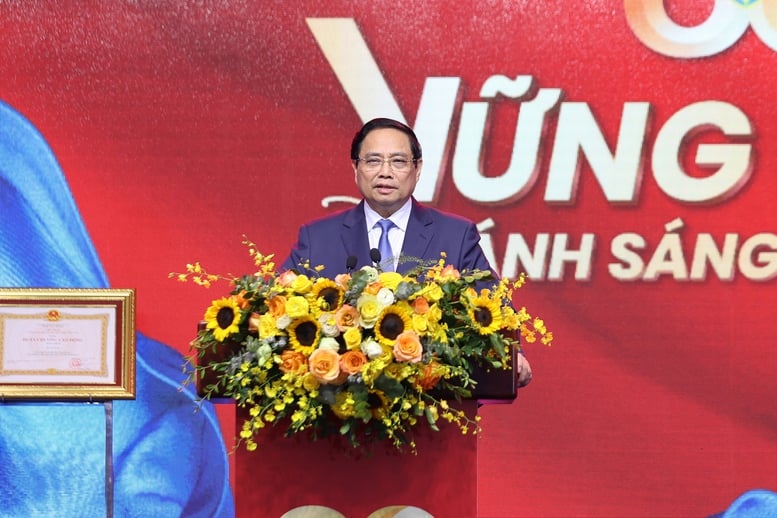 |
| The Prime Minister proposed focusing on thoroughly grasping and implementing the "5 viewpoints" - Photo: VGP/Nhat Bac |
The Prime Minister stated that in the coming time, the world situation will continue to evolve rapidly, complicatedly and unpredictably. Our country will have favorable opportunities and intertwined difficulties and challenges, but difficulties and challenges will outweigh opportunities and advantages. To achieve the completion of the two 100-year strategic goals, the tasks set for us are very heavy; in which, General Secretary To Lam clearly stated that the institution is the "bottleneck of the bottlenecks" and directing the completion of institutions and laws is considered the top priority task.
According to the Prime Minister, continuing to thoroughly grasp Resolution No. 27-NQ/TW dated November 9, 2022 of the 6th Conference of the 13th Party Central Committee on continuing to build and perfect the socialist rule-of-law state of Vietnam in the new period, Resolution 66 of the Politburo, ministries, branches, agencies and localities must attach importance to law-making and building a rule-of-law state; Ministers, heads of ministerial-level agencies, Chairmen of People's Committees of provinces and cities must directly direct the work of law-making and enforcement; must raise awareness of law-making and enforcement, build a streamlined, effective and efficient apparatus, build a team of good, flexible and proactive cadres to respond to situations, ensure material facilities and policies for cadres.
The Prime Minister proposed focusing on thoroughly understanding and implementing the "5 viewpoints":
(1) Institutions are both the goal and the driving force, resource, and solid foundation for the country's development.
(2) Institutions must go early, go ahead to pave the way for development breakthroughs, maximize potential, advantages, and creativity, and meet the requirements of promoting industrialization, modernization, and international integration.
(3) Transform the state, turn the work of law making and enforcement from "a bottleneck of bottlenecks" into "a breakthrough of breakthroughs", into a competitive advantage, leading the country to develop in a new era.
(4) Investment in policy and law making is investment for development and investment must have focus and key points.
(5) Focus on removing difficulties and obstacles in institutions and laws, creating breakthroughs in mobilizing and effectively using all resources, creating momentum and strength for the country to steadily enter a new era, an era of striving for strong, civilized, prosperous and prosperous development of the nation.
At the same time, the Prime Minister requested the Judicial sector to focus on implementing "5 pioneers": Pioneering in comprehensively promoting institutional improvement, speeding up progress, and improving the quality of law-making; pioneering in removing difficulties and obstacles in legal regulations from practical requirements; pioneering in reviewing, systematizing and codifying; pioneering in decentralization and delegation of powers in law-making and law enforcement; pioneering in popularizing and educating the law.
"We must accelerate, break through, set an example, take the lead, and pioneer in building and enforcing laws, making progress, fairness, and equality in building a socialist rule-of-law state, upholding the rule of law, and contributing to constantly creating rapid and sustainable national development, making law a national competitive advantage in the process of deep, substantive, and effective integration in the new era," the Prime Minister emphasized.
The task in the new development stage of the country for the Judicial Sector is extremely heavy but also very glorious, proud and of special significance; in which it is necessary to basically complete the removal of "bottlenecks" due to legal regulations in 2025. This is the task of the entire political system, of all levels, sectors and localities, with the Ministry of Justice as the core.
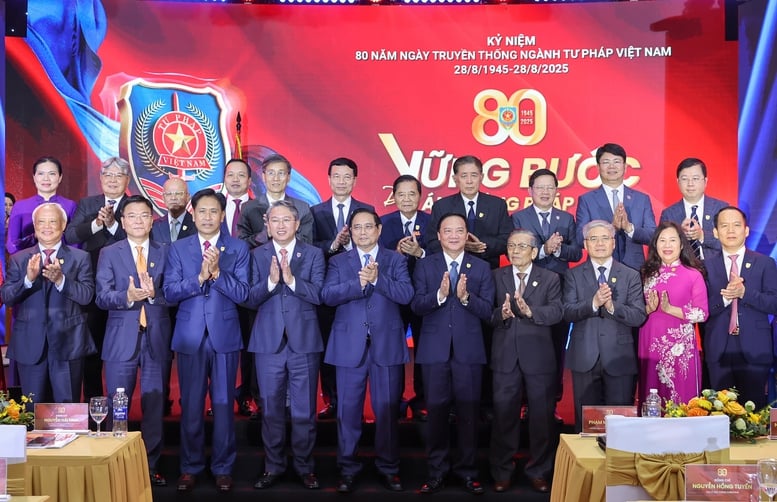 |
| Prime Minister Pham Minh Chinh takes a photo with delegates - Photo: VGP/Nhat Bac |
Regarding the orientations and tasks for the coming time, the Prime Minister basically agreed with the Ministry's report and proposed focusing on implementing well a number of key contents.
Firstly, strengthen the Party's leadership in building and perfecting the socialist rule of law state, building a socialist legal system and legal system. Laws must fully embody the Party and State's guidelines, policies and guidelines; strictly comply with the prescribed order and procedures. Laws need to be framework-oriented and principled, only regulating issues under the authority of the National Assembly; assign the Government to regulate in detail. Heads of ministries, branches and localities must directly lead, direct and be responsible to the Party, State, Government, Prime Minister and the law for the work of law-making, according to their assigned functions, tasks and powers.
Second, continue to innovate thinking in the work of building and perfecting laws in the direction of both ensuring the requirements of state management and encouraging creativity, liberating all productive forces, and unleashing all development resources; shifting from "management" thinking to "service" thinking, creating development; eliminating the thinking of "if you can't manage, then ban". Promote decentralization and delegation of power along with resource allocation, improving the enforcement capacity of subordinates.
Third, create breakthroughs in law enforcement, build a culture of law compliance and rule of law. Continue to review and promptly institutionalize the "Four Pillars", especially Resolution 66 of the Politburo. Strongly innovate the dissemination and education of law, effectively operate the National Law Portal; strengthen policy communication.
Fourth, prioritize resources, invest systematically and appropriately in law-making work. Continue to review and improve policies to attract and reward law-making staff; arrange technology infrastructure, large databases, apply digital technology, AI, virtual assistants, etc. in innovating and modernizing law-making and law enforcement work. Pay special attention to building a team of judicial staff with qualities, capacity, and qualifications to meet task requirements, exemplary, leading in law enforcement and compliance, "serving the public, abiding by the law, impartial and selfless for the people to follow", as beloved Uncle Ho instructed.
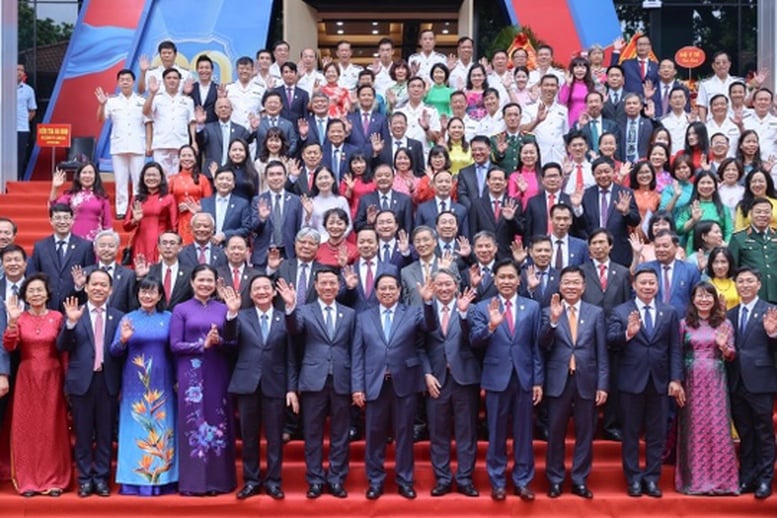 |
| Prime Minister Pham Minh Chinh takes a souvenir photo with delegates - Photo: VGP/Nhat Bac |
Fifth, implementing the motto of "open institutions, smooth infrastructure, smart governance", however, it must go hand in hand with strengthening and designing inspection and supervision tools, in order to prevent, detect, promptly stop and resolutely handle acts of corruption, negativity in law enforcement and policy profiteering. Continue to promote cutting administrative procedures, reduce compliance costs for people and businesses. Reduce intermediaries, eliminate the situation where superiors "legitimize" subordinates.
Sixth, law making must closely follow reality, originate from reality, respect reality, and take reality as a measure; so that law can truly be a "lever, a fulcrum" for development; pay attention to the comments of scientists, experts, and the people with the spirit of "What is ripe, clear, proven to be correct by reality, and agreed by the majority, then legislate; do it while learning from experience, gradually expanding, not being perfectionist, not hasty".
The Prime Minister said that President Ho Chi Minh once emphasized: "Society is always changing, advancing forever and never regressing. The law also advances forever and never regresses. That is the law." In the context of our country entering a new era, the mission of the Judicial Sector is to constantly perfect the Vietnamese legal system to be democratic, fair, modern, synchronous, substantive, serving the people, approaching international standards and practices, and implemented strictly, consistently, publicly and transparently.
The Prime Minister hopes and believes that, with the 80-year tradition of construction and development, under the leadership of the Party, the accompaniment and supervision of the National Assembly, the management and administration of the Government, the attention and close coordination of the entire political system, the support of the People, the cooperation of international friends, the consensus of all cadres, civil servants and public employees of the Judiciary sector, the judicial work in the coming time will continue to have new developments, contributing to the successful implementation of the revolutionary cause of the Party and the nation.
Proposing that ministries, departments, branches, Party committees and authorities at all levels continue to pay attention to and closely coordinate with the Ministry of Justice and the entire justice sector, considering judicial work as a common task, a central, continuous and regular task of the entire political system, ministries, branches and localities, with the spirit of "being in the right role, knowing the lesson", "unanimously at all levels, and being clear throughout", the Prime Minister wished the collective leadership and all cadres, civil servants and public employees of the justice sector to continue to promote the achievements and glorious traditions of the 80-year history of the justice sector, worthily succeeding the career of previous generations, always uniting, joining hands, unanimously, striving to excellently complete all tasks, worthy of the trust of the Party, State and People.
Source: https://huengaynay.vn/chinh-tri-xa-hoi/thu-tuong-dua-the-che-phap-luat-tro-thanh-dot-pha-cua-dot-pha-loi-the-canh-tranh-quoc-gia-157088.html






![[Photo] General Secretary To Lam attends the 80th anniversary of Vietnam's diplomacy](https://vphoto.vietnam.vn/thumb/1200x675/vietnam/resource/IMAGE/2025/8/25/3dc715efdbf74937b6fe8072bac5cb30)


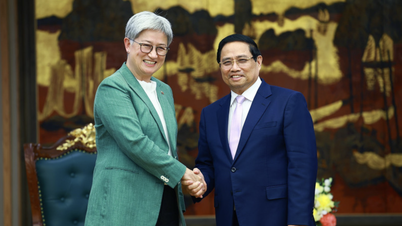




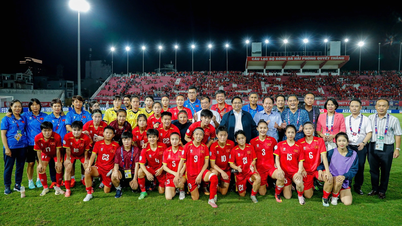

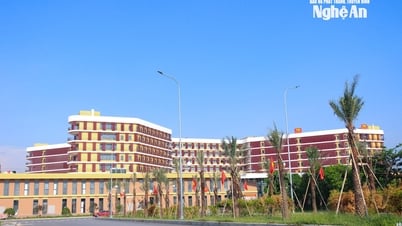


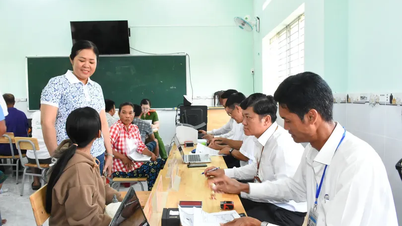




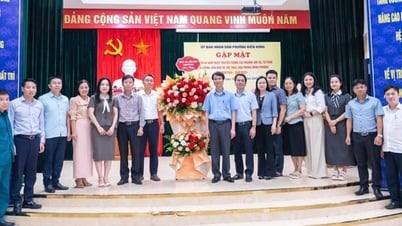










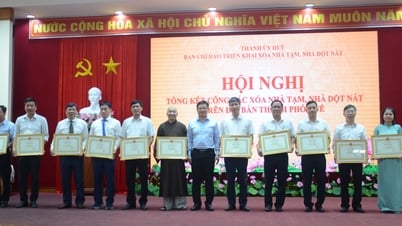

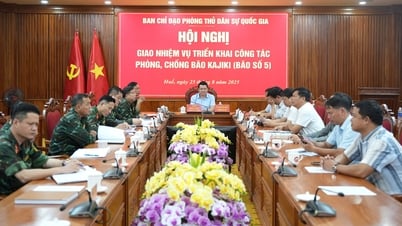



















































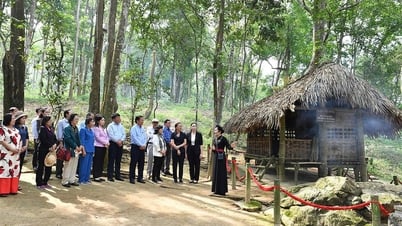





















Comment (0)